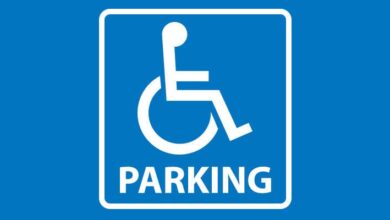TECH AND GUIDE
How to improve my sleep quality as a Scholarship Student Abroad
Improving sleep quality as a scholarship student abroad can be challenging due to changes in environment, schedule, and potential stressors. However, adopting healthy sleep habits and making adjustments to your lifestyle can significantly contribute to better sleep.
Here are some tips to help you improve your sleep quality scholarship student abroad:
- Establish a Consistent Sleep Schedule:
- Go to bed and wake up at the same time every day, even on weekends.
- This helps regulate your body’s internal clock, making it easier to fall asleep and wake up naturally.
- Create a Relaxing Bedtime Routine:
- Develop pre-sleep rituals such as reading a book, taking a warm bath, or practicing relaxation techniques.
- Avoid stimulating activities, such as using electronic devices, at least an hour before bedtime.
- Optimize Your Sleep Environment:
- Make your bedroom comfortable and conducive to sleep. This includes a comfortable mattress and pillows, as well as a cool, dark, and quiet environment.
- Consider using blackout curtains, earplugs, or a white noise machine if necessary.
- Limit Stimulants and Alcohol:
- Avoid consuming caffeine and nicotine close to bedtime.
- While alcohol may initially make you feel sleepy, it can disrupt sleep patterns and lead to poorer sleep quality.
- Exercise Regularly:
- Engage in regular physical activity, but try to complete your workout at least a few hours before bedtime.
- Regular exercise can contribute to better sleep, but intense physical activity too close to bedtime may have the opposite effect.
- Watch Your Diet:
- Avoid heavy meals close to bedtime. If you’re hungry, opt for a light snack.
- Consider foods that promote sleep, such as those containing tryptophan (e.g., turkey, dairy, nuts).
- Manage Stress:
- Develop stress management techniques, such as mindfulness, deep breathing, or meditation.
- Consider keeping a journal to jot down thoughts and concerns before bedtime to help clear your mind.
- Limit Naps:
- While short naps can be beneficial, try to limit them to 20-30 minutes and avoid napping too close to bedtime.
- Be Mindful of Jet Lag:
- If you’ve recently traveled across time zones, give your body time to adjust to the new schedule.
- Seek Help if Needed:
- If you consistently struggle with sleep, consider seeking advice from a healthcare professional or a counselor.
Conclusion
Remember that everyone’s sleep needs are different, so it may take some experimentation to find what works best for you. If sleep difficulties persist, it’s advisable to consult with a healthcare professional for personalized advice.




